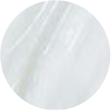Δημιουργήστε μια κάρτα Sephora online και επωφεληθείτε με -15% για αγορές άνω των 50€ | Κωδικός: NEW15
A solution for
every concern
Their presence in the formulation of a care product is a guarantee of effectiveness that you can feel. We're talking about super molecules that offer the best of their properties to enhance skin and hair.
We're thinking of vitamin C for radiance, hyaluronic acid that plumps up the skin, AHAs and BHAs that exfoliate and help with cell renewal; not to mention retinol, keratin, collagen or salicylic acid that reveal your unique beauty.


Skincare

Haircare
Vitamin C: The Glow Partner
Known for its antioxidant and anti-aging properties, vitamin C is an active ingredient that helps fight the first signs of skin aging.
-
Sephora Collection
Vitamin face mask Fabric face mask
39
€ 5,99papaya face mask + vitamine C4 μεγέθηClean at Sephora
What is vitamin C?
Vitamin C is a powerful antioxidant found naturally in certain foods (such as citrus fruits and kiwi fruit!). Beauty products are adopting it and offering formulas with vitamin C in different forms and which appear in ingredient listings under the names ASCORBIC ACID and ASCORBYL GLUCOSIDE.
HOW DOES IT WORK?
Vitamin C helps inhibit the production of melanin. It helps reduce the appearance of dark spots for a more even skin tone. Its antioxidant properties help reduce the signs of aging.
Benefits
Brightens skin and is also an antioxidant.
Condition
Dull skin, brown spots.
See more
To do:
- For best results, use vitamin C every day, especially in the morning. It helps protect the skin from environmental stressors such as sun and pollution.
- Protect your skin with SPF before going out in the sun when using vitamin C.
- Avoid applying it at the same time as other ingredients such as retinol or AHA & BHA. It's best to alternate: one in the morning and one in the evening.
Expert tip:
Start with a low concentration formula to see how your skin reacts. If it stings a little, it's normal. But if it feels worse, talk to your dermatologist.
See more
Lactic Acid and Glycolic Acid: Gentle Exfoliation
AHAs and BHAs have become essential exfoliants that refine skin texture and help fight imperfections.
What are lactic acid and glycolic acid?
These molecules are integrated into skin care formulas to improve the appearance of the skin and reduce the appearance of wrinkles, fine lines and spots. They are often found in gentle peels and scrubs (without grain) but also in serums to be applied at night to gently exfoliate the skin.
How does it work?
Lactic acid and glycolic acid exfoliate the skin to remove dullness and smooth fine lines. Bonus: They help skin better absorb the treatments in your beauty routine.
Benefits
Improves skin texture.
Problems
Blemishes, visible pores.
See more
To do:
- Cleanse your skin in the morning or in the morning to remove dead skin cells. Then apply a moisturizing serum.
- Protect your skin with a day-care product that includes an SPF.
- Avoid combining AHAs and BHAs with other skin care products containing retinol or vitamin C.
Expert advice:
Check the instructions for use. In general, it is recommended to use lactic acid and/or glycolic acid-based skin care products every other night, or even once or twice a week. If it stings a little, it's normal. But if it feels worse, talk to your dermatologist.
See more
Hyaluronic acid: the beneficial agent
A must in cosmetics, hyaluronic acid is a moisture booster that captures water to make skin more beautiful and plump.
What is hyaluronic acid?
It is a molecule that captures water. It is naturally found in the body but its production decreases over time. Fortunately, it can be synthesized and incorporated into various serums and skin care products to take advantage of its moisturizing actions.
How does it work?
Hyaluronic acid is the ultimate moisturizing molecule: it fills the spaces between skin cells to restore volume, density and elasticity.
Benefits
Plumps the skin, smoothes and restores suppleness to the skin.
Problems
Tightness, loss of bounce, dry skin.
See more
To do:
- For a reinforced action, combine serum and moisturizer with hyaluronic acid: dry and sensitive skin will appreciate the gesture and the comfort.
- Hyaluronic acid is for all skin types, at all ages.
Expert advice:
Found the right formula for you? Apply it regularly to enjoy its benefits.
See more
Retinol and Bakuchiol: The Pro-Aging Combo
A true anti-aging power combination, retinol and bakuchiol allow the skin to replenish vitamin A to fight wrinkles and loss of elasticity.
What are retinol and bakuchiol?
Retinol is a synthetic version of vitamin A because vitamin A is rarely used in its raw form. Retinol is a mild type of retinoid (a generic term for all synthetic vitamin A). Bakuchiol, which is plant-based, is a natural alternative to retinol.
How does it work?
Retinol and bakuchiol help stimulate cell renewal, which helps reduce wrinkles, fight loss of firmness, smooth skin texture, limit dark spots... !
Benefits
Smoothes and firms the skin.
Problems
Wrinkles, loss of elasticity.
See more
To do:
- It is recommended to apply retinol-based products at night.
- Adopt it as soon as your skin starts to show the first signs of aging. Are you between 20 and 25 years old? It can be a great idea to incorporate it into your routine, twice a week.
- Protect your skin with SPF before going out in the sun when using retinol.
- Retinol is not recommended at all during pregnancy.
- Avoid using it at the same time as vitamin C or AHAs and BHAs. It is best to alternate: one in the morning and one in the evening.
Expert advice:
Start by incorporating retinol into your routine a few nights a week, using a low concentration formula and a small amount. Then gradually increase the frequency of application and concentration.
See more
Salicylic Acid: The Imperfection Specialist
It's the molecule that helps unify, purify and smooth skin. Salicylic acid is one of the best assets to obtain a perfect complexion result.
What is salicylic acid?
Salicylic acid is a molecule extracted from certain plants such as willow bark, but also almonds, tomatoes and raspberries. In its synthetic form, it is the star ingredient of anti-imperfection skin care products, but also of complexion makeup dedicated to combination to oily skin.
How does it work?
This ingredient cleanses the skin, ridding it of various impurities and reducing blemishes and the appearance of pores while evening out the complexion.
Benefits
Smoothes and evens skin, purifies, reduces blemishes.
Problems
spots, uneven skin tone, blackheads and whiteheads.
See more
To do:
- Serum or lotion, preferably apply your salicylic acid skin care products at night. Let dry for a few seconds to apply a moisturizing night cream or a nourishing oil.
- As it is photosensitising, use a day cream with an SPF... After thoroughly cleansing your skin.
- Do not apply it at the same time as other active ingredients such as retinol, lactic or glycolic acid, otherwise it may irritate your skin.
Expert advice:
Check the instructions for use. Even if it is suitable for sensitive skin, it is recommended not to use salicylic acid every day but 2 to 3 evenings a week. A slight stinging sensation is normal, but if it is too strong, rinse your face and consult a specialist quickly.
See more
Collagen and peptides: Firmness Expertise
Collagen is an essential ingredient in the fight against the loss of firmness of the epidermis. It firms and plumps the skin to fight against the first signs of aging and prolong the skin's youthfulness.
What is collagen?
Collagen is a protein produced by the body in sufficient quantities... But this production decreases with age. To compensate for this slowdown, cosmetics take over. In skincare or food supplements, collagen-based products make the skin firmer, but also stimulate the natural production of this protein, for a double beauty effect.
How does it work?
By ensuring the cohesion of tissues between them, collagen creates a tensor effect that allows the skin to remain toned and plump and to firm the oval of the face.
Benefits
Firms and plumps the skin.
Problems
Loss of firmness and elasticity.
See more
To do:
- Collagen and peptides can be included in any skincare routine and can be adopted daily by all skin types (even if you have sensitive skin!).
- These are active ingredients that can be used both in the morning and at night.
- It is perfectly possible to combine topical care (serums or creams) and supplements in your daily routine.
Expert advice:
Have you found the right formula for you? Apply it regularly to reap its benefits. Don't hesitate to combine several collagen-based products in your beauty routine.
See more
UVA and UVB filters: Beneficial Protectors
UVA and UVB filters help protect us from the sun's harmful rays.
What are UV filters?
UVA and UVB are the two types of sunlight that penetrate the ozone layer. While they provide light and warmth, ultraviolet A and ultraviolet B cause some damage to the skin. We must therefore protect ourselves from them on a daily basis and when we are exposed to the sun.
How does it work?
There are 2 kinds of filters against UV: chemical filters which will react with UV rays that they will absorb; and mineral filters (zinc oxide, titanium dioxide...) which will create a barrier on the skin to physically prevent UV rays from penetrating.
Benefits
Helps protect the skin and prevent UV damage.
Problems
Sun exposure.
See more
To do:
- Apply a sunscreen product every day, even when the sun is hidden behind the clouds.
- Always apply sunscreen as the last step of your skincare routine in the morning, before you apply your makeup. If you're short on time, look for makeup products with SPF protection.
- If your product has an expiration date, make sure it hasn't expired. When sorting through your beauty products, check the shelf life of your sunscreen after opening.
Expert advice:
Be sure to cleanse your face in the evening to remove any residue of sunscreen that may clog pores.
See more
Niacinamide: The Beauty Shield
Sebum regulator, an anti-inflammatory, purifying, skin barrier protector: this form of vitamin B3 is a "versatile" ingredient, making it a key active in serums and moisturizers.
What is niacinamide?
Also known as nicotinamide, niacinamide is one of the three forms that vitamin B3 can take. Present in whole grains or in certain green vegetables, it is now synthesized to be included in cosmetics.
How does it work?
Niacinamide reinforces the hydrolipidic barrier and helps protect the epidermis. It also helps to reduce the appearance of pores and to reduce excess sebum for a more even, clearer complexion.
Benefits
Protects the skin, refines pores, absorbs excess sebum.
Problems
oily skin and skin with uneven tone.
See more
To do:
- You can use it on any skin type and combine it with any beauty routine.
- Pair it with a moisturizer suited to your skin type.
- Don't forget the sun protection.
Expert advice:
Niacinamide is suitable for all skin types. This form of vitamin B3 can be used in combination with all other active ingredients. In case of tingling or irritation, consult a dermatologist.
See more
Squalane: Intense Hydration
Moisturize the skin without making it greasy, that is the promise of squalane, a molecule close to the skin's hydrolipidic film to protect the skin.
What is squalane?
Squalane is a molecule with moisturizing and emollient properties. As a protector, it plays a key role in keeping the skin supple and soft. Note that squalane is also present in many hair care products for soft and manageable hair.
How does it work?
Squalane is close to squalene, a natural component of human sebum. It helps strengthen the skin's hydrolipidic barrier to help maintain moisture. Known for its emollient properties, it leaves the skin soft and supple without an oily finish.
Benefits
hydration, protection.
Problems
dry, dehydrated skin.
See more
To do:
- This active ingredient is suitable for all skin types, even the most sensitive.
- Combined with a moisturizing cream, it will maintain the skin's hydration.
- The more squalane in your skin care product, the more it will limit the absorption of other cosmetics. It should therefore be applied last, for example just before sunscreen.
Expert advice:
Squalane is generally very well tolerated by the skin because of its formula, which is close to the sebum naturally produced by the human body. This molecule can be used in combination with any other active ingredient. In case of skin reaction, consult a dermatologist.
See more
Your hair is dull, your scalp itch? To pamper it, start by giving it a detox. This phase allows oxygenating and soothing. Plants and minerals are quite good ingredients to do that.
Benefits
Minerals and plants have many virtues to remove some impurities. Astringents, anti-inflammatories, absorbents or natural exfoliators, they help regulate sebum, soothe scalp irritations, reduce dandruff and repair brittle hair...
See more
What for?
- Sebum excess: sea salt, lemon, vegetable charcoal...
- Purify and eliminate toxins: sea salt, vegetable charcoal, sage...
- Soothe irritations: lemon, aloe vera...
- Eliminate dandruff: sage, aloe vera...
- Strengthen and repair: caffeine, rice water...
To do:
- Choose a cure based on your needs.
- When everything is well, you still want to give your scalp a little detox from time to time: this is when everything begins for healthy hair.
- Watch out for overdose: lemon or salt, in the long run, can have a drying effect for example...
Expert tip:
You’ve found the composition that works for you? Apply it regularly to enjoy its benefits.
See more
Whether it is dry, mixed or oily, hair needs to be nourished to stay strong. If your hair is brittle, this phase is even more unavoidable because it allows the hair fibre to “recover” to better absorb repair treatments. Oils are known to be nourishing.
Benefits
Extracted from fruits, seeds, plants, vegetable oils combine nutrition and protection. In fact, they mix benefits from their ingredients (olive, avocado, jojoba, coconut...) with fat acids, able to maintain hair’s hydrolipidic film. Known virtues since Antiquity for gloss, softness and elasticity results...
See more
What for?
- Strength and gloss: coconut oil, avocado oil, camellia oil or argan oil.
- Growth and hair loss prevention: castor oil, argan oil, avocado oil, rose oil...
- Sebum excess: Jojoba oil.
- Dry hair: Jojoba oil or rose oil.
- Brittle hair, split ends: castor oil or avocado oil.
- Nourish: coconut oil, argan oil, Jojoba oil, camellia oil.
- Rejuvenate: rose oil, argan oil.
To do:
- If you use pre-care oil, remove it with (at least) 2 shampoos.
- In small doses, some oils can be applied on dry hair to tame frizz or repair damaged ends.
- Feel free to mix different oils to increase benefits.
- Don’t confuse “vegetable oil” and “oily macerate”. Benefits are different.
- Avoid coconut oil right after having your hair dyed.
Expert tip:
Jojoba oil is suitable for both dry hair and oily hair because its unique composition is similar to human sebum and therefore can regulate it: fill the gaps or appease excesses.
See more
Split ends, brittle, dull or weak hair...All signs that show a damaged hair fibre. One solution: give it molecules and proteins, often the base of its natural constitution. That includes keratin, a key element to hair.
Benefits
Just like skin, hair naturally produces some molecules to stay healthy. Until the day its production decreases (exterior aggressions, age...) To make up for this decline, you can adopt hair care treatments that include them but you can also offer it others components containing natural or synthetic forms. An in-depth care for repaired, softer and shinier hair.
See more
What for?
- Reinforce, revitalize: amino acids, hyaluronic acid, keratin, ceramides, Spirulina.
- Help growth: amino acids including cysteine, hyaluronic acid, stemoxidin.
- Preserve hydration: hyaluronic acid, ceramides.
- Regain elasticity and softness: hyaluronic acid, keratin, ceramides.
- Repair and reduce split ends: keratin, hyaluronic acid.
- Protect from external aggressions: ceramides, keratin, Spirulina.
- Avoid frizziness: ceramides, keratin, hyaluronic acid.
To do:
- Molecules don’t affect colours so don’t be shy, even after hair colouring.
- Favour hair lengths and ends.
Expert tip:
You’ve found what works for you? Apply it regularly to enjoy its benefits.
See more






















